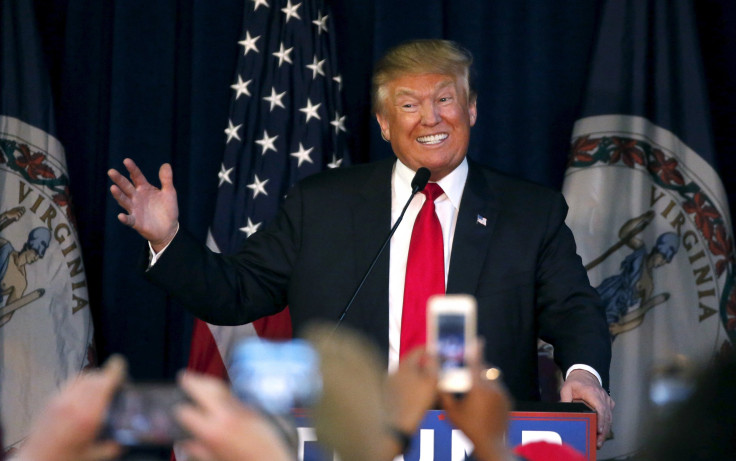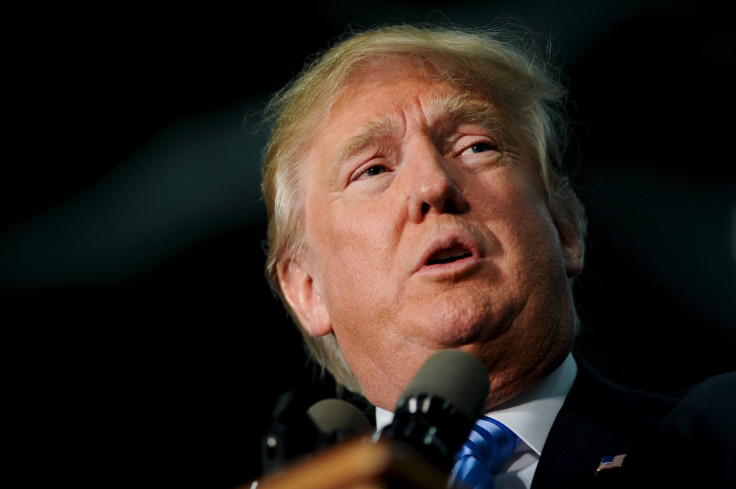Donald Trump Call For US Ban On Muslims Could Hurt His Own Mideast Business Deals, Cost Him Millions

In his latest controversial move, Republican presidential candidate Donald Trump called for a “total and complete” travel ban on Muslims trying to enter the United States. The White House declared it “un-American” and many fellow GOP candidates, Democrats and U.S. Muslim leaders denounced the comments.
Given the strange dynamics of the presidential race this year, the widespread criticism may only strengthen Trump's political standing. But the billionaire businessman’s statements might cost him in another way. A decision by Muslim countries to reciprocate with their own ban could hurt Trump's business interests in the region. His company's on-the-ground dealings in various Muslim countries are a key part of his empire -- one he first built through his dealings with the Saudi royal family.
That original deal was struck in 1995, just six years before 19 hijackers -- 15 of whom were Saudi nationals -- flew planes into the World Trade Center towers Sept. 11, 2001. Back then, Trump made a deal for New York City's famed Plaza Hotel -- a bailout valued at $325 million -- with an investment group linked to Saudi Prince al-Walid bin Talal Abdulaziz al-Saud. He had previously sold his yacht to the same Saudi prince. (The money went to U.S. and Japanese banks that had lent money to Trump or held a mortgage on the hotel, not to Trump himself, the New York Times reported.)

Today, even as Trump barnstorms the United States denouncing Muslims, his company continues to do big business in the same countries from which he wants to ban emigrants. For example, Trump’s portfolio boasts about major golf resorts that his company is spearheading in Dubai, the largest city in the United Arab Emirates. In 2013, the Trump Organization signed its first agreement with Damac Properties, a development company based in Dubai, to operate Trump International Golf Club Dunai. A second golf course, Trump World Golf Club Dubai, also expected to be built by Damac Properties, is slated to open by the end of 2017.
“I always wanted to come back and pay the great tribute to Dubai. We never forgot Dubai. ... It was always a place where we wanted to be and, now, we are here in a very big way,” Trump said about the Trump International Golf Club Dubai, Emirates 24/7 reported last year.
Trump’s daughter Ivanka Trump this year told a real estate industry trade publication that the Trump Organization is considering new investments in UAE, Qatar and Saudi Arabia.
"We haven’t made a final decision in any of the markets, but we have many very compelling deals in each of them,” she told the website. “I think there is an opportunity to exceed what’s [already] been done in the Middle East, and [we can] create something truly iconic and special. We always love developing in places where people have bold visions -- and that’s very true here in the Middle East.”
Trump has cited the threat of terrorism to justify his call to ban Muslims from entering the United States, yet some of the very countries with which his firm has done -- or is considering doing -- business have been criticized by the U.S. State Department on the issue of terrorism. In a December 2009 cable published by WikiLeaks, the department complained of “an ongoing challenge to persuade Saudi officials to treat terrorist financing emanating from Saudi Arabia as a strategic priority.” The department also declared that “Qatar's overall level of CT [counter-terrorism] cooperation with the U.S. is considered the worst in the region,” and said “UAE-based donors have provided financial support to a variety of terrorist groups.”
Trump's anti-Muslim themes have already drawn notice in the international business world. Lisa Knight, founder of the Brand Foundation in Dubai, told the National last month that some brand associations had worked well for developers -- such as Shah Rukh Khan’s tie-in with Royal Estates. But Trump, she said, is a “wholly negative brand ambassador.”
"He’s [Trump] made some pretty awful statements,” Knight told the National. “For somebody who is running to become the president of one of the world’s most multicultural countries, he’s not really demonstrating a very good understanding of anyone other than white, male Americans.”
************************************************************************************************
© Copyright IBTimes 2024. All rights reserved.






















